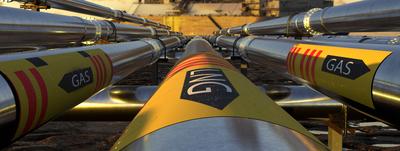
Biogas treatment- increasing the energy content of biogas



Gas liquefaction is an important process in the energy industry in which gases are converted into a liquid form in order to optimize them for transport and storage. By liquefying gases, the substances can be transported and stored in a compact and easy to handle format.
The process of gas liquefaction begins with the removal of contaminants and moisture from the raw gas. The purified gas is then cooled to very low temperatures until it reaches the point where it converts to liquid form. This point depends on the type of gas to be liquefied.
Gases are liquefied by cooling and compression. The gas is exposed to extremely low temperatures in special plants, such as cryocooling plants, in order to condense and keep it in liquid form. The coolants used in this process are often substances with a low boiling point, such as nitrogen or carbon dioxide.